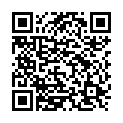|
|
|
| Module code: MST.ELE |
|
|
5V (5 hours per week) |
|
5 |
| Semester: 3 |
| Mandatory course: yes |
Language of instruction:
German |
Assessment:
[still undocumented]
|
MST.ELE (P231-0036, P231-0037) Mechatronics and Sensor Technology, Bachelor, ASPO 01.10.2012
, semester 3, mandatory course
MST.ELE (P231-0036, P231-0037) Mechatronics and Sensor Technology, Bachelor, ASPO 01.10.2011
, semester 3, mandatory course
|
75 class hours (= 56.25 clock hours) over a 15-week period.
The total student study time is 150 hours (equivalent to 5 ECTS credits).
There are therefore 93.75 hours available for class preparation and follow-up work and exam preparation.
|
Recommended prerequisites (modules):
MST.ELT
[updated 01.10.2012]
|
Recommended as prerequisite for:
MST.AEL Applied Electronics
[updated 01.10.2012]
|
Module coordinator:
Prof. Dr. Dieter Hornung |
Lecturer: Prof. Dr. Dieter Hornung
[updated 01.10.2012]
|
Learning outcomes:
- After successfully completing this module, students will be familiar with the properties of the most important electronic components.
- Be familiar with methods for designing electronic circuits
- Be able to develop circuit modules for sensor technology and actuator technology on their own.
[updated 10.05.2021]
|
Module content:
Introduction to semiconductor physics, Diodes (rectifier diode, Zener diode, photodiode, light-emitting diode, optocoupler), Diode application circuits, Bipolar transistors, Application circuits of bipolar transistors, Field-effect transistors, Application circuits of field-effect transistors, Operational amplifiers, Application circuits with operational amplifiers, Sensor application circuits
[updated 10.05.2021]
|
Recommended or required reading:
Günther Koß / Wolfgang Reinhold : Elektronik, Leipzig, Fachbuchverlag Leipzig
Ulrich Tietze / Christoph Schenk: Halbleiterschaltungstechnik, Berlin, Springer Verlag
Jacob Millman / Arvin Grabel: Microelectronics, New York, McGraw – Hill Book Company
[updated 10.05.2021]
|


